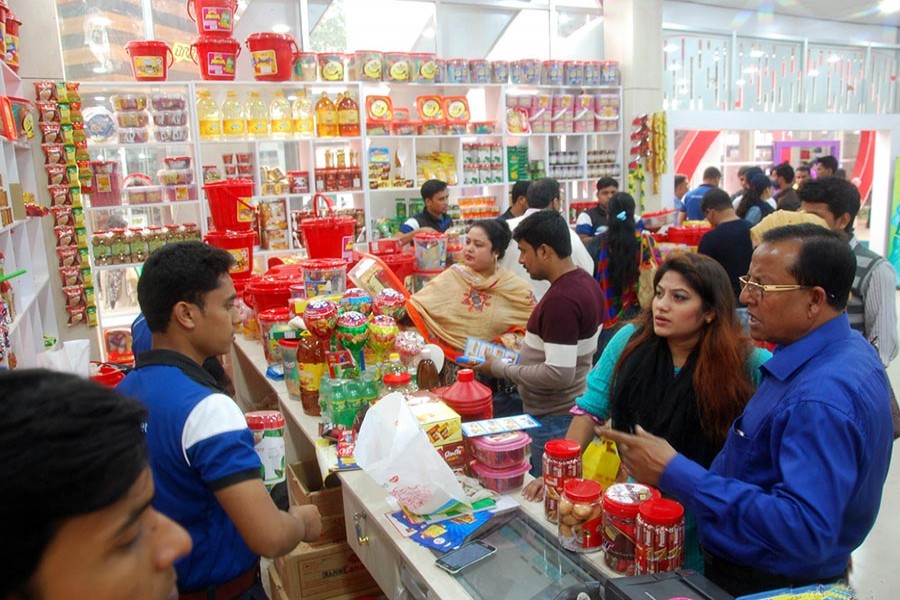By all accounts, the month-long Dhaka International Trade Fair (DITF), held each year, has failed to do justice to its name. An international trade fair is something different from what turns out to be a venue for family outing for a while together with purchase of a few household articles, particularly by women. This sounds rude but the fair's international character is conspicuous only by its absence. Rarely do a few stalls - not pavilions, to be sure - actually live up to the standard of international fair. Usually pavilions and stalls at an international venue should showcase the products unique in design, performance and sustainability. Businesspeople are invited either to exhibit their special products or to see for themselves local products enjoying an edge over comparable goods and commodities. True, it does happen only on a limited scale but orders received by local business houses or invited companies are pitiably low. Actually, the purpose of arranging such trade fairs is to clinch trade deals across the table in order to boost export and import of the host country.
Inaugurating the DITF on Monday (January 01), Prime Minister Sheikh Hasina directed her focus on the right spot in that she asked traders to diversify the export basket. Without diversifying items of export and maintaining quality, it is impossible to attract foreign buyers' attention. An international trade fair acts as a confluence of streams of production lines. Here is an opportunity for local manufacturers to showcase their products for foreign buyers to choose from. Similarly, foreign companies enjoy the opportunity of exhibiting their items here to take order for export to the host as well as other countries participating in the trade show. Not that the real products have to be exhibited, instead their prototypes or models can be put on show. Importers or exporters will be briefed by company representatives through power-point presentation and by other traditional or unfamiliar means.
If the major portions of the DITF's activities centred around such an initiative, the fair would have assumed a different character all together. Instead, the international transaction deals have been relegated to a less important status with daily shopping by visitors at the venue predominating the scene. Implements for household chores or consumer goods sell like hot cakes as men, women and children frantically look for the items of their choice. A governing motive is that such items are cheaper there than in markets. Not always. Those not proficient in bargaining may end up on the losing side.
The fact that Bangladesh is yet to concentrate on a few areas with immense potential has not been of help in consolidating an international character of the DITF. Pharmaceutical companies are on a ground-breaking course but the industry has been consistently overlooking the interest of the people here. Price rise of common medicines has pushed those beyond the purchasing power of the poor. Unabated price rise of drugs should be stopped. The prime minister's emphasis on information and communication technology should also be taken seriously. Similarly, leather industry can take a challenge in order to take business to a new level and boost the country's economy. When this happens, the DITF will take a different shape.


